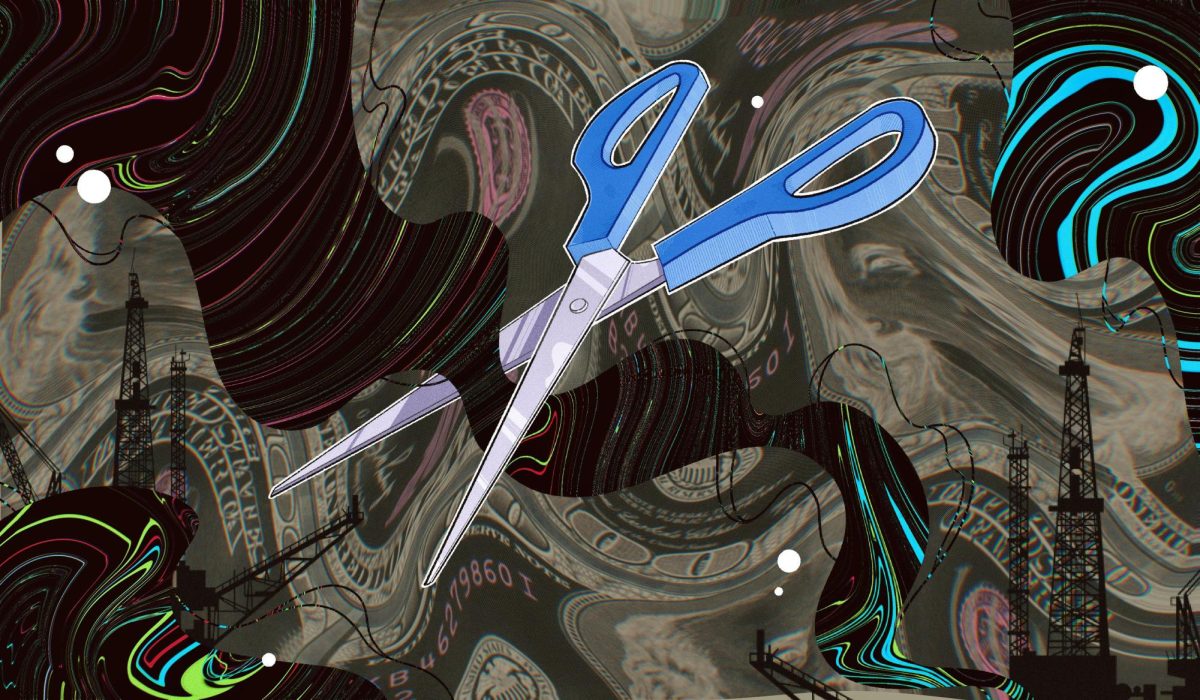As an engineer, I used to measure the value of everything based on hard numbers, while my ex-wife — an art historian and sociologist by training — did not. The dichotomy in our worldviews, and my arrogant belief in the superiority of my own, fractured our marriage and contributed to our divorce. My engineering education had indoctrinated me to value only the quantifiable, to be an unquestioningly obedient employee designing machines for the highest bidder. I was oblivious to the repercussions of my ideology.
Everything changed when I read Engineering and Sustainable Community Development by Juan Lucena. I discovered that my focus on quantitative details, air of superiority, and complicity in hyper-consumption and inequality were symptoms of the dominant engineering mindset. This mindset includes an assumption of only one right answer to every problem, a belief that engineers are expert in everything and a lack of critical thinking. Lucena illustrates how this mindset subjugates engineers to imperialism, militarism and consumerism by recounting myriad cases of engineers exploiting indigenous peoples and the environment in the name of material growth. For example, engineers building the Suez Canal used millions of slaves — thousands of whom died — to establish man’s dominion over nature.
Whenever I admit to being an engineer, there is a degree of shame in my voice. Yes, engineering has benefitted society, but only if “society” really means “the wealthy.” Consider sanitation — in the 20th century, improved sanitary technology in wealthy countries like the U.S. eradicated numerous diseases, while the Centers for Disease Control and Prevention estimates that 2.5 billion people worldwide still lack access to hygienic toilets.
Engineering’s destructive and unjust history is rarely, if ever, taught to engineers, and its pervasive mindset has become institutionalized. Nowhere is this more apparent than the Massachusetts Institute of Technology, where I attended graduate school: arguably the world’s preeminent institution of engineering education. MIT’s mascot is a beaver (nature’s engineer) and it’s motto is “Mens et Manus” (Mind and Hand), denoting one who obtains theoretical scientific knowledge and applies it to practical ends.
Adherence to this motto engenders excellent facility in solving technical problems, but it eschews consideration for socio-cultural, political, environmental and ethical dimensions of the world. It’s no surprise engineers create technologies that disrupt communities and ecosystems. The violent and acontextual complexion of engineering also precipitates racial and gender homogeneity in the field, with women representing less than 13 percent of the workforce according to 2014 data from the National Science Foundation.
A few academic programs like Global TIES at UCSD, where I teach, are educating a new cadre of engineers concerned with the social and moral implications of their work, but such efforts are far from widespread. In this column, I will describe how my experiences opened my eyes to the harmful tendencies of engineering. I invite you to join me on a journey of critical self-reflection to challenge the dominant mindset of a field that purports to benefit society.









Mark • Apr 7, 2016 at 12:24 pm
http://acs7.cortland.edu/biowise/beaverecologicalimportance.pdf
Eng1 • Mar 22, 2016 at 4:38 pm
This is quite the read. I am also an engineer. I’ve practiced in water treatment/conveyance, wastewater treatment/collection, stream remediation, and lastly, oil and gas. While, the US may have been “wealthy”, wastewater treatment is the hallmark of 1st world nations. And eradicating certain pathogenic diseases is not usually considered a bad thing…? Engineering, and engineering professionals do often times have an air of superiority, this is true. In our history (and in some cases our present) advancement of the human race is made at cost. But, the world that we know, and the world that even ancient civilizations knew, is and was built by engineers. Were it not for engineers, none of us would be reading or responding to this particularly biased and flamboyant article. True, engineers do not practice for free, but for their own personal and professional growth. Just the same with Doctors, Lawyers, Politicians, not to mention college professors…. The world is not free, everything has a cost. There are some who actually provide services for free. Ever heard of engineers without borders? Engineering does not “purport” to benefit society, it DOES benefit society. If you are so sure of your position, I do wonder how you wrote this? How do you commute to/from work? How do you communicate with people at distance? In what facility do you “teach”. The world we all live in and take for granted was engineered, in ALL regards. It may not be a perfect profession, but you should really consider what you are attacking.
Mark • Mar 14, 2016 at 12:57 pm
I read the whole article, Meghan. Charles (above) is right. Engineering did not destroy your marriage, your ego and pride did. You would be better served to stop blaming something or someone else.
Charles • Feb 18, 2016 at 11:51 am
Stopped reading at “only one right answer for every problem”. This isn’t engineering thought, this is BAD engineering thought. Engineering didn’t ruin your marriage, you did with your own hyperinflated ego.
Meghan • Feb 19, 2016 at 11:42 am
That is a rather narrow-minded response Charles. Your statement of the author’s “hyper-inflated ego” only contradicts what he states in the next paragraph of “Whenever I admit to being an engineer, there is a degree of shame in my voice.”
True, it is an engineer’s job to know that there is not “only one right answer for every problem”, however, a lot of older engineers do employ this tactic in the way of “we did it that way before, it worked well, let’s just keep doing it that way”. Narrow-mindedness and close-mindedness plague our profession because we are trained into conservativeness and the preset ways of the past.
I don’t like readers like yourself that stop reading articles because something in it offends them. Read the whole way through, then make a judgement. Even if it does not fully align with your ideals, there is truth to much of what the author states.
The author talks about his shame that his engineering really only benefits the wealthy. This really hits home with me; as an engineer in the construction industry, our clients are those building new, multi-million dollar buildings to benefit their companies. Sure, we engineer for churches and higher-education as well, but I have been swept deep into a capitalistic industry that I did not see myself in when I was in high school. Yes, some engineers do create structures and devices to benefit the less well-off, but the number of engineers that don’t grossly outweighs them.
Sorry I got on a tangent. I never reply to comments on websites, but for some reason your comment really struck a chord with me today, and my response was not meant to be mean, just to encourage you to be fully informed before you write for the world to see.
Engr OFONAGORO EPHRAIM • Feb 16, 2016 at 3:13 am
At the City College of New York School of Engineering, our mascot is also the “BEAVER” the Dam Builder. As you already know the beaver has never been destructive to its environment. At the City College the curriculum include the humanities which aims at teaching the engineer to learn how to design,build and operate for the benefit of mankind. To the best of my knowledge we are at peace with family and our surroundings. You may like to borrow a leaf from the original Beavers.
please • Mar 25, 2016 at 1:24 pm
In no way do I support the ridiculous claims of the above article,
BUT
WHAT ARE YOU TALKING ABOUT?
the Beaver is hugely destructive to its environment. It cuts down tons of trees and turns a nice stream into a huge swampland with its dams so it can build a nice lodge and hang out.